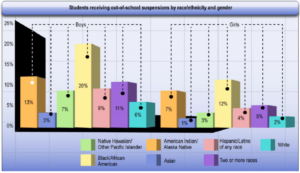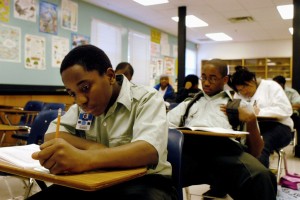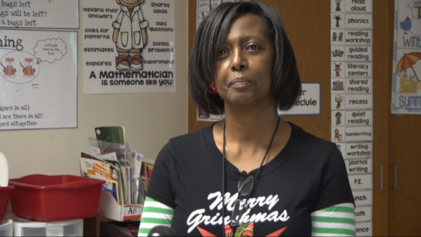By now, a multitude of studies have helped capture the disparities in discipline handed to Black children when compared to their white counterparts, but a new study is now suggesting that addressing that racial bias will be much harder than simply getting more Black teachers in the classroom.
When study after study found that Black children were more likely to receive more severe punishments for the same behavioral issues shown by white students, the answer to the problem seemed simple enough.
Start changing the face of America’s predominantly white, female teaching force.
While doing so would certainly come with a plethora of benefits for Black students, it may not actually do much to quell the problems of discrimination when it comes to discipline in school.
According to a study conducted by MacArthur “Genius” Jennifer L. Eberhardt and Jason A. Okonofua, the implicit racial bias that drives teachers to view Black students as troublemakers and suspend them more often than their white counterparts is just as common in Black teachers.
It’s a finding that pulls back the curtain on the true power of racial stereotypes and the perpetuation of such generalizations in everyday life. Even when Black people are a part of the oppressed and marginalized population, it does not make them immune to the endless tactics that are being used to portray Black citizens as criminals, thugs and miscreants.
“I think that it attests to the pervasiveness of stereotype effects,” lead author Jason Okonofua, a Ph.D. student at Stanford, told the Huffington Post. “Research has demonstrated that exposure to media influences the stereotypical associations we all make in our daily lives. Thus, all teachers, regardless of race are more likely to think a Black child, as compared to a white child, is a troublemaker.”
So when Eberhardt and Okonofua followed up their first experiment with racial bias by including a larger pool of teachers, the results didn’t see a drastic change.
The first experiment started by presenting 57 female teachers of different racial backgrounds a picture of a middle school along with the profiles of some imaginary students. The profiles were based on real student records.
Each of the students had misbehaved twice but some were given traditionally Black names like Deshawn or Darnell while others were given names like Greg or Jake.
As ABS previously reported, it was found that Black students were more likely to be seen as a troublemaker than the students that were assigned white names even when they committed the same infraction.
Researchers followed up this study with another group of more than 200 teachers. In this group, the teachers were predominantly white females but also included men and people of other races. They were given the same exercise as the smaller group but the results were unwavering.

So if Black teachers are just as likely to punish Black students more severely than white ones, can anything be done to make the learning environment fair for children of all races?
Okonofua believes it will simply take a new approach to the matter that acknowledges that racial bias plagues everybody, not just white teachers. He noted that being aware of racial bias is key and could help teachers think twice when dealing with Black students.
There have also been years of research being poured into efforts to help eliminate racial biases in the classroom. Some school districts are aiming to reduce all school suspensions and expulsions and alter their focus on how to address behavioral issues without forcing children outside the classroom.
Okonofua has actually teamed up with more Stanford researchers at five middle schools, the Huffington Post reported, in order to help guide the schools through the types of changes that could put an end to the discrimination that continues to harm so many Black students.
In the end, Okonofua says, it all comes down to changing the way people think.
“Try not to think of yourself as a fixed character in the same way that you should try not to think of your students as fixed characters,” he told the Huffington Post. “Rather, think of yourself as a growing person who needs to put in effort and practice to contend with the influences of stereotypes.”



